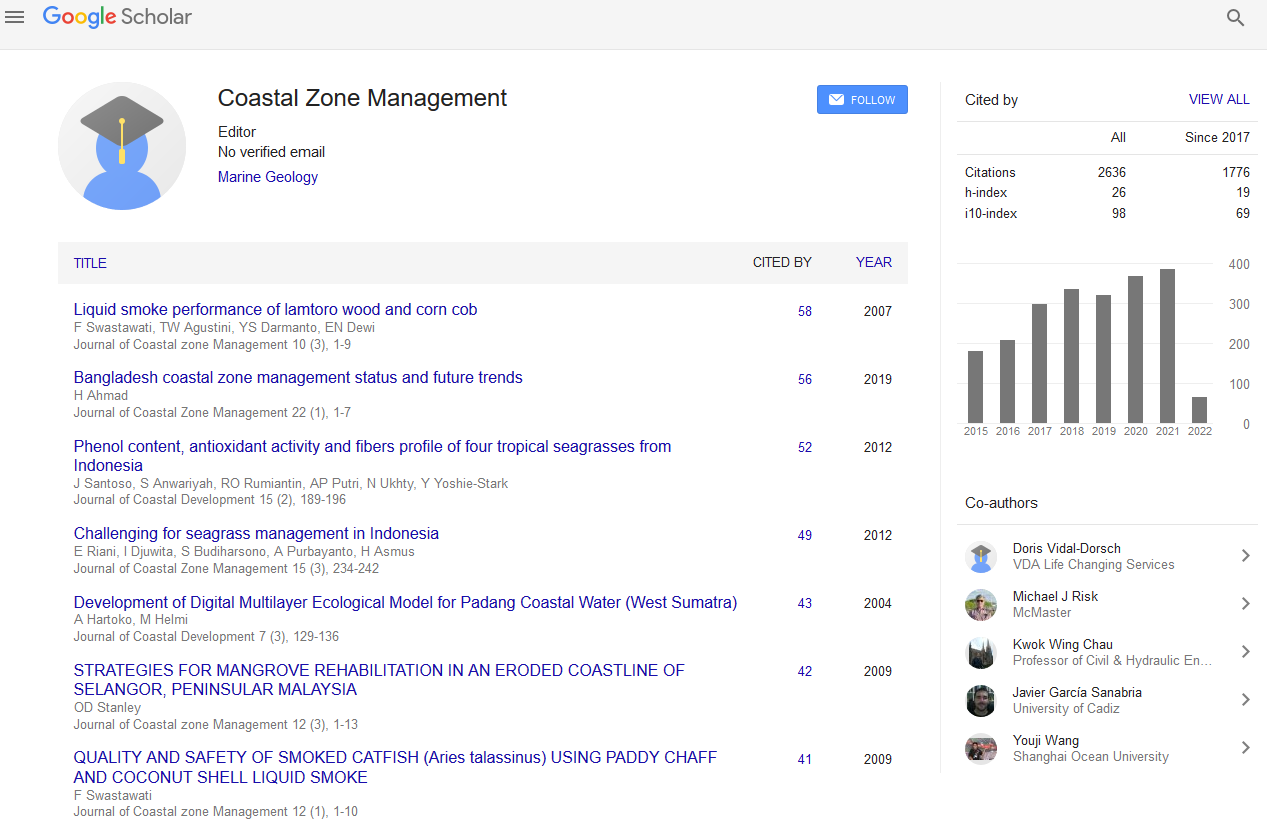Indexed In
- SafetyLit
- RefSeek
- Hamdard University
- EBSCO A-Z
- OCLC- WorldCat
- Publons
Useful Links
Share This Page
Journal Flyer

Open Access Journals
- Agri and Aquaculture
- Biochemistry
- Bioinformatics & Systems Biology
- Business & Management
- Chemistry
- Clinical Sciences
- Engineering
- Food & Nutrition
- General Science
- Genetics & Molecular Biology
- Immunology & Microbiology
- Medical Sciences
- Neuroscience & Psychology
- Nursing & Health Care
- Pharmaceutical Sciences
Is offsetting a feasible way to mitigate impacts of coastal reclamation on biodiversity? A case study from China
2nd International Conference on Coastal Zones
July 17-18, 2017 Melbourne, Australia
Shuling Yu and Baoshan Cui
Beijing Normal University, China
Posters & Accepted Abstracts: J Coast Zone Manag
Abstract:
Reclamation of coastal wetlands has a major impact on biodiversity globally. We investigated the feasibility of using biodiversity offsets to mitigate the impacts of coastal reclamation on biodiversity using impacts of reclamation on macro benthic diversity in the Yellow river, Delta region in China as a case study. We estimated 472 km2 of coastal wetlands have been reclaimed in the Yellow river delta between 1980 and 2015, which is an average of 13.5 km2 of coastal wetland reclaimed per year. We developed a methodology to calculate biodiversity offset ratios for coastal wetlands using inputs including- biodiversity lost due to development and gained due to restoration offsets, the delay between reclamation and restoration, the amount of biodiversity lost due to leakage and an annual discount rate. Offset ratios were particularly sensitive to the baseline used for the counterfactual. However, the relatively short time it takes for macro benthos to be restored in coastal wetlands suggests that biodiversity offsets are theoretically feasible for mitigating the impacts of reclamation on this assemblage. However, we estimated that the area of suitable land available within the Yellow river delta was sufficient to offset 1980-2015 years of reclamation, which suggests that other strategies such as avoiding future reclamation and reducing the impacts of future reclamation on macro benthos are also necessary if no net loss of microbenthic biodiversity is to be achieved in the Yellow river delta region of China. Our results have important implications for conservation in the face of ongoing coastal reclamation.
Biography :
Email: shulingyu@mail.bnu.edu.cn

